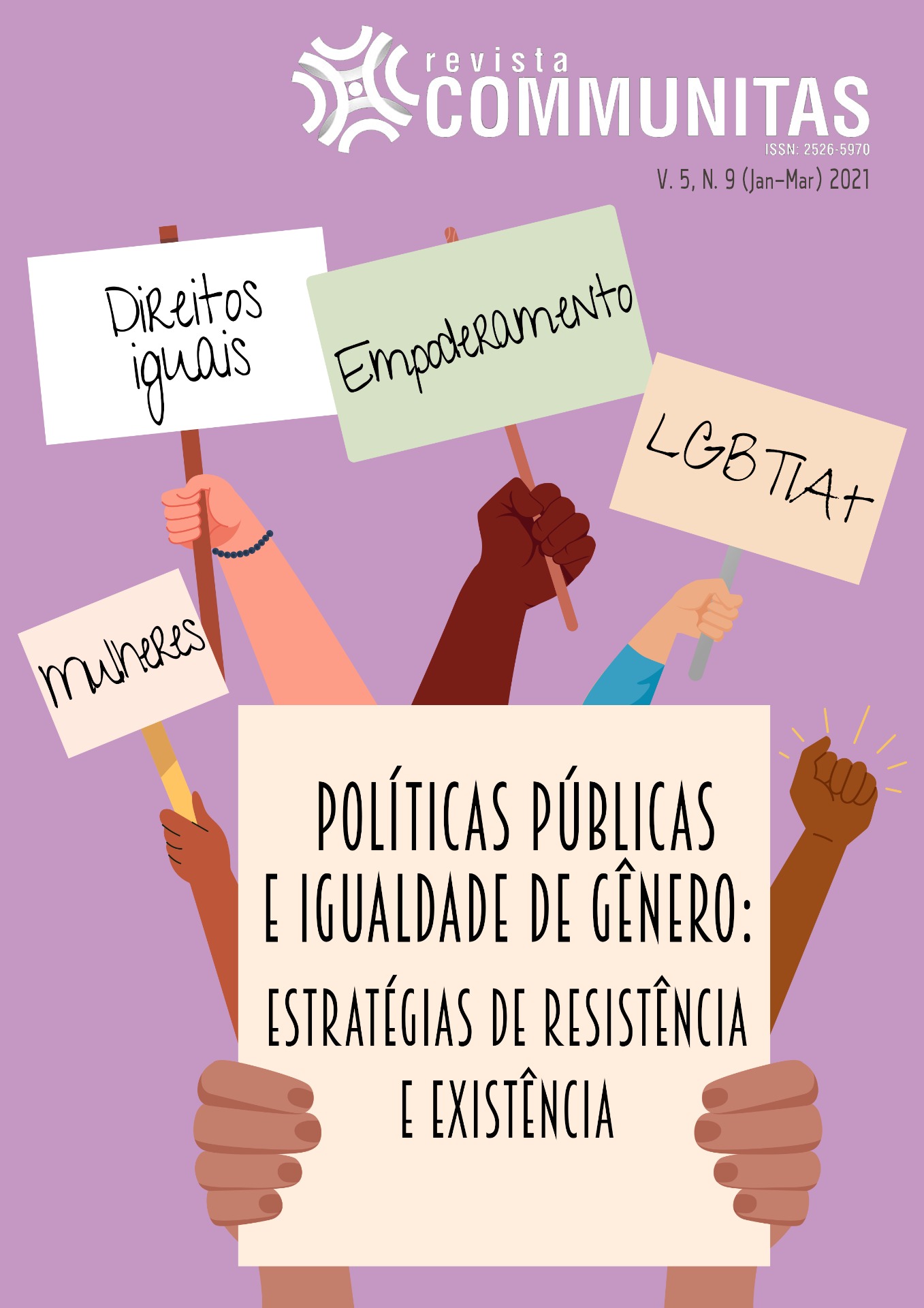A LGBTIFOBIA COMO AGENTE DA EXCLUSÃO ESCOLAR
Uma aposta no combate a essa fobia.
Palabras clave:
lgbtifobia; exclusão escolar; bullying.Resumen
Es común escuchar que las bromas y los chistes siempre han existido en la escuela y que esto no debe verse como prácticas de acoso. Sin embargo, las investigaciones desarrolladas (SEPULVEDA, 2012; FREITAS, 2010; JUNQUEIRA, 2014) en los últimos años muestran que tales acciones son formas de exclusión que involucran el contexto escolar. Estas opresiones pueden caracterizarse por continuos actos de abuso, ya sean físicos, verbales o materiales, en una relación desigual entre las x involucradas. Las LGBTIfobia son formas de acoso que se practican contra lesbianas, gays, bisexuales, trans, travestis e intersexuales y se configuran como prácticas excluyentes. A pesar del auge del tema, la LGBTIfobia no es solo un problema educativo, está presente en la sociedad en su conjunto. Por lo tanto, no solo le corresponde a esta institución tratar de resolver este problema, ya que también es social, ya que afecta la calidad de vida y el bienestar de todos los cubiertos. La escuela, muchas veces, y aquí hay que afirmar, que no todas son escuelas, porque cada una es diferente a la otra, no están exentas de reproducir tales fenómenos sociales contra grupos minoritarios, pero sobre todo es un espacio de educación y socialización. Sin embargo, no podemos dejar de analizar que las prácticas de exclusión LGBTIphobic que se dan en algunas de estas instituciones, como reproductoras de lo presente en la sociedad, necesitan ser discutidas en este artículo, ya que llevan al sufrimiento a muchos estudiantes LGBTIS+ (SEPULVEDA, 2012 y 2015).
Descargas
Citas
CASTEL, Robert. As armadilhas da exclusão. In: CASTEL, Robert; WANDERLEY, Luiz Eduardo W.; WANDERLEY, Mariangela Belfiore. Desigualdade social e a questão social. São Paulo: Educ, 2007.
DAVIS, A. (2016). Mulheres, raça e classe, trad. Heci Regina Candiani. São Paulo: Boitempo.
FERRARI, Anderson. Você já deve saber sobre minha “orientação sexual” (se não sabia, ficou sabendo agora, hehe) – subjetividades e sujeitos em negociação. In: FERRARI, Anderson. Sujeitos, subjetividades e Educação. Juiz de Fora: UFJF, 2010.
FERREIRA, Maria Elisa Caputo; GUIMARÃES, Marly. Educação Inclusiva. Rio de Janeiro: DP&A, 2003.
FOUCAULT, Michel. Microfísica do poder. Rio de Janeiro: Graal, 1979.
FOUCAULT, Michel. Ditos e escritos: estratégia − poder e saber. Rio de Janeiro: Forense, 2006. vol. 4.
GINZBURG, Carlo. Mitos, emblemas e sinais. São Paulo: Companhia das Letras, 1989.
JUNQUEIRA, Rogerio Diniz. Heteronormatividade e vigilância de gênero no cotidiano escolar. In: RODRIGUES, Alexsandro; DALLAPICULAM Catarina; FERREIRA, Sérgio Rodrigo da S. Transposições Lugares e Fronteiras em Sexualidade e Educação. Vitória: EDUFES, 2014.
JUNQUEIRA, Rogerio Diniz. Currículo Heteronormativo e Cotidiano Escola Homofóbico. Espaço de Currículo, v. 2, pp. 208 – 230. Setembro de 2009 a Março de 2010.
LOURO, Guacira Lopes. O corpo educado. Belo Horizonte: Autêntica, 1999.
LOURO, Guacira Lopes. Gênero, sexualidade e educação: uma perspectiva pós-estruturalista. 10. Ed. Petropolis, RJ: Vozes, 1997.
MARCHESI, Alvaro; MARTÍN, Elena. Da terminologia do distúrbio às necessidades educacionais especiais. In: COLL, César; PALACIOS, Jesús; MARCHESI, Alvaro. Desenvolvimento Psicológico e Educação: necessidades educativas especiais e aprendizagem escolar. Porto Alegre: Artes Médicas, 1995.
SANTOS, Boaventura de Sousa. Um ocidente não ocidentalista? A filosofia à venda, a douta ignorância e a aposta Pascal. In: SANTOS, Boaventura de Sousa; MENEZES, Maria Paula. Epistemologias do Sul. São Paulo: Cortez, 2010.
SAWAIA, Bader. As artimanhas da exclusão: análise psicossocial e ética da desigualdade social. Petrópolis, RJ: Vozes, 2001.
SEPULVEDA, Denize. Emancipação social e exclusão no cotidiano escolar: a homofobia e sua influência nas tessituras identitárias. Tese de doutorado em Educação. Universidade do Estado do Rio de Janeiro, 2012.
SEPULVEDA, Denize; SEPULVEDA, Jose Antonio. Laicidade do Estado e da educação: valorizando as discussões sobre gêneros e sexualidades nas escolas públicas. Restratos da Escola, v; 14, n. 28, p. 91-105, jan./abr. 2020.
SEPULVEDA, Jose Antonio; SEPULVEDA, Denize. O pensamento conservador e sua relação com práticas discriminatórias na educação: A importância da laicidade. Revista Teias, v. 17, n. 47, 2016.
SILVA, Adriana da. A roda de conversa e sua importância na sala de aula. 75 f. Monografia (Licenciatura em Pedagogia) – Universidade Estadual Paulista, Rio Claro, 2012.
UNESCO. Final Report on the World Conference on Special Needs Education: Access and Quality. Salamanca: Ministry of Education and Science, 1994.
Descargas
Publicado
Cómo citar
Número
Sección
Licencia
Derechos de autor 2021 Communitas

Esta obra está bajo una licencia internacional Creative Commons Atribución-NoComercial-CompartirIgual 4.0.
Os Direitos Autorais para artigos publicados nesta revista são do autor, resguardando-se os direitos de primeira publicação para a Revista Communitas. Em virtude da aparecerem nesta revista de acesso público, os artigos são de uso gratuito, com atribuições próprias, em aplicações educacionais e não-comerciais.
























